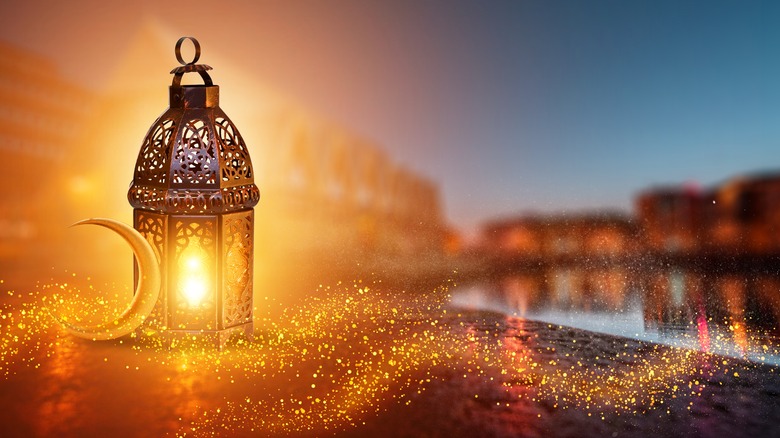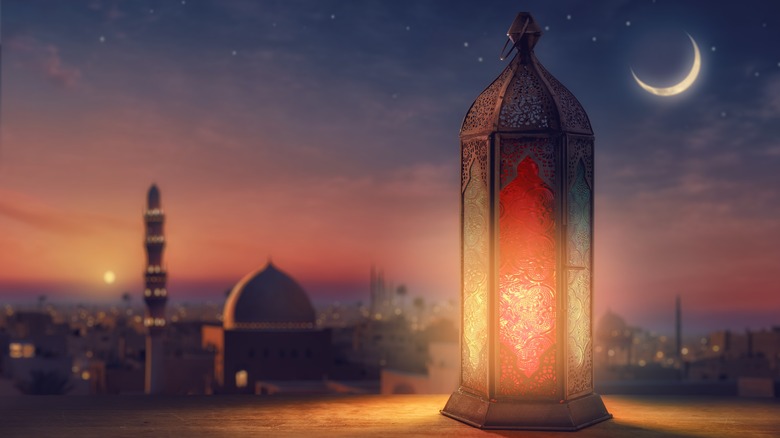Are You Allowed To Drink During Ramadan?
Every year, during the ninth month of the Islamic calendar, practicing Muslims participate in Ramadan. From sunrise to sunset, they abstain from food and drink (as well as poor social habits like gossiping and arguing). To non-observers, this can raise questions about how stringent the rules surrounding eating and drinking are, with the answer being that the rules are absolute. Not even water is permitted during fasting hours, although water does have spiritual significance during iftar, the breaking of the fast.
Ramadan is the month when the Qur'an, Islam's central religious text, was "revealed as a guide for humanity", decreeing it as a time for spiritual introspection and discipline (Al-Baqarah 2:185). All who have reached puberty are required to fast, unless fasting would be unnecessarily difficult for them. People who are unable to fast, such as those who are pregnant, sick, or traveling, can be exempt as long as they make up their fast days at a later time. There are two ways to do this: Folks can choose to fast when they are more able, or they can provide a poor person with food for every missed day.
Through fasting Muslims seek taqwa, an Arabic term which, in the context of Islam, means a higher awareness of God, faith, and truth. Their impressive discipline is not achieved without preparation, however.
How do Muslims prepare for Ramadan?
Fasting can be taxing on both mind and body, so preparing for it is vital to maintaining good health during Ramadan. For many Muslims this is a social time, one where taraweeh, nightly prayers specific to Ramadan, are widely carried out in mosques. There, observers can feel bolstered by their shared experience. It's also common for iftar, the sunset breaking of the fast, to be shared by families, friends, and communities. Folks will often gather at each other's homes, or at communal dinners at a mosque.
In terms of physical preparation, Sonya Islam, MPH, RD, shared tips with Cornell Health on adjusting to the demands fasting places on the body. She expresses the importance of staying hydrated during permitted hours, suggesting that observers should "drink several times through the night, even if you aren't thirsty". Water, traditionally drunk at iftar in line with the Prophet Mohammad's practice of breaking his fast with dates and water, is also the best way to hydrate your body. She also recommends eating mindful portions during iftar instead of getting too carried away, as eating the correct portion "puts less stress on your body and gives you more energy than eating huge amounts at one time".
During suhoor, the pre-dawn breakfast, Islam emphasizes ensuring a balanced meal to maintain energy and blood sugar levels, with whole grains, fruit and veg, protein, and healthy fats found in nuts and olives on her list of recommendations to include in Ramadan recipes.

